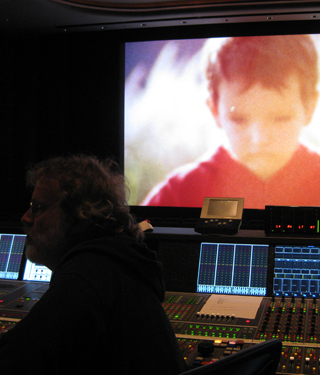![]() Composer Scott Miller has been selected to write new music for Kyma and EMMI: a trio of self-playing acoustic robots created by Troy Rogers, Steven Kemper and Scott Barton. (Rogers studied with Scott Miller at St Cloud State University and Jeffrey Stolet at the University of Oregon and is currently pursuing a doctorate at the University of Virginia).
Composer Scott Miller has been selected to write new music for Kyma and EMMI: a trio of self-playing acoustic robots created by Troy Rogers, Steven Kemper and Scott Barton. (Rogers studied with Scott Miller at St Cloud State University and Jeffrey Stolet at the University of Oregon and is currently pursuing a doctorate at the University of Virginia).
In Détente, Miller will be using Kyma to create an ecosystemic environment for the acoustic robots and exploring the limits of real-time amplitude and frequency modulation by forcing them to perform audio-rate tremolo and trills. The new work is scheduled for performance at the Sound and Music Computing conference on the Music for Robots concert on 14 July 2012.

 “The Age of Cageâ€, on Friday May 18, 2012 was the final event in an Homage to Cage series organized by the University of Salerno, culminating in
“The Age of Cageâ€, on Friday May 18, 2012 was the final event in an Homage to Cage series organized by the University of Salerno, culminating in